Pat Bertram's Blog, page 276
March 23, 2012
Counting Down to the Second Anniversary of Grief
I've been on a grief hiatus for a few months — no major upsurges of grief — but yesterday, for no apparent reason, I started crying, and I've been crying on and off ever since. I've been trying not to think of the upcoming two-year anniversary of my life mate/soul mate's death, trying to look ahead to the future, trying to find something to be passionate about (or at least something to hang my life on). Despite the exhaustion of attempting to put a good face on the seemingly bleak future, I thought I'd been doing well.
months — no major upsurges of grief — but yesterday, for no apparent reason, I started crying, and I've been crying on and off ever since. I've been trying not to think of the upcoming two-year anniversary of my life mate/soul mate's death, trying to look ahead to the future, trying to find something to be passionate about (or at least something to hang my life on). Despite the exhaustion of attempting to put a good face on the seemingly bleak future, I thought I'd been doing well.
And then came the tears.
It still surprises me that the body remembers even when the conscious mind doesn't. I'd forgotten that yesterday was the two-year anniversary of the last time we talked, the last time we were together in our home, the last time we touched. But something deep inside, something beneath thought, remembered. And grieved.
Two years ago yesterday, the hospice nurse expressed concern for us. I hadn't slept in I don't how many days, and neither had he. Some people, as they near death, suffer from what is called terminal restlessness. In his case, the rapidly growing tumors, his impossibly fast heart rate, the morphine, and various other factors made it impossible for him to be still. He wanted/needed to be on his feet, moving, always moving. And since he was too weak to be left alone, I would pace with him.
That last morning at home, the nurse suggested that he go to the hospice care center for a five-day respite, and he and I agreed. He knew I needed sleep (though ironically, I got very little sleep those days) and I thought they would adjust his dosages to give him the most alertness and the least pain. But they never tried. They dosed him with tranquilizers to keep him in bed, and he never had another moment of consciousness.
Those days were exactly two years ago. And I remember them as clearly as if they were happening now. I watched him die. I was there at the end. As agonizing as that was, I know there are worse things. I might not have been there when he died. I might not have witnessed the very moment he left my life. I might not have been able to say good-bye. Unlike many bereft, I don't have to deal with those regrets.
For a long time I regretted taking him to the hospice care center — I felt as if I'd deprived him of one day at home, one more day of lucidity, but in the end, I suppose there was no other choice. He'd stopped being able to swallow, the morphine made him disoriented, and the tranquilizers they prescribed to stop the terminal restlessness made him delusional. I'm glad he doesn't have to deal with his body any more, but oh, I so wish I could see him once more, or talk to him on the phone, or go back to his store where we spent so much time when we were young and new.
I hope death feels better from the other side than it does from this side, because the only thing that brings me peace is the belief that he is no longer suffering. It's strange to think that the very moment his suffering ended, mine began. I never expected to grieve. He'd been sick for so very long that his death came as a relief, but when the truth hit me, it hit with the force of a cyclone. And two years later, I am still whirling from the pain.
Tagged: death, grief hiatus, grief upsurge, Second anniversary of grief, terminal restlessness, two years of grief








March 22, 2012
Choosing Book Titles
The title of a book is important. It's the first thing a prospective reader sees . . . or at least it used to be. Now the author's name generally comes first and apparently is a much better selling tool than the title ever was. A title is still important, however. It often sets the mood for the book, it lays out the theme, and it tantalizes readers into opening the book. Think of Gone With the Wind. With such a title, you expect a wide sweep of a story. The title speaks of loss and perhaps survival in the face of broad changes. Even before you open the book, you are primed to find out what is lost and why it disappeared into the wind. Imagine then, how different your feeling would be if the book had been published under its working title. Pansy. Would the book, the movie, the character have ever had such an impact if that had been the name? Of course not.
Another major work with last minute name changes was Catch 22 by Joseph Heller. Originally Catch 18, it was changed because of another book that was coming out at the same time: Leon Uris's Mila 18. And 1984 was originally 1948. So not the same feeling!
Choosing a title is not an easy task. My novels all had simple working titles: The Red Death, The Chameleon, The Gangster Book, The Alien Book, but except for The Red Death, none of those titles were ever possible for the real title.
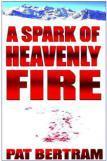
For A Spark of Heavenly Fire , I considered using the title The Red Death since my quarantine mirrored the middle ages, though in a hi-tech way, but the name had already been used several times. And anyway, from the very first, I'd planned on using A Spark of Heavenly Fire. That was my inspiration for the book, the Washington Irving quote: "There is in every true woman's heart a spark of heavenly fire, which lies dormant in the broad daylight of prosperity; but which kindles up, and beams and blazes in the dark hour of adversity." I wanted to tell the story of ordinary women, women who seemed colorless in ordinary times, but who blazed brightly in dark times. When I found no takers for the book, I thought perhaps the title didn't reflect the story, so I changed it to In the Dark Hour. And I got an agent. She couldn't sell the book, so when my contract was up, I changed the title back to A Spark of Heavenly Fire. And that's the title Second Wind Publishing released it under.
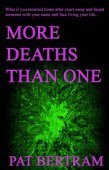
I had to try several times before I got the title of More Deaths Than One right. The working title was The Chameleon but that was never a real contender since I didn't want to give the story away. So first I used the Law of the Jungle, which amused me since the jungle was so much a part of the story. Also, at one point I had my hero say that the villain might be above the law, but he wasn't above the law of the jungle. Both the line in the book and the title ended up being deleted because they were too trite, so next I went with Nature of the Beast. It was adequate, and I would have stuck with it despite its triteness, but then I came across a couplet from Oscar Wilde's "Ballad of Reading Gaol": He who lives more lives than one/More deaths than one must die. Since my hero appeared to have more lives (and deaths) than one, More Deaths Than One struck me as the perfect title.
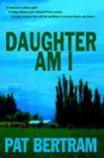
Daughter Am I , my gangster book, only had one previous title: Sins of the Fathers, though really it should have been Sins of the Grandfathers. Then I found the Rudyard Kipling quote: "Daughter am I in my mother's house but mistress in my own." The quote would have more accurately described the theme of the book if it were "daughter am I in my father's house," but I was taken with the title Daughter Am I and decided it was close enough.
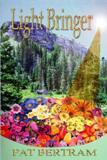
Which brings me to my most recent novel, Light Bringer. Sad to say, I haven't a single story to tell about the title. Even though the working title was The Alien Book, I always knew the title was Light Bringer. Light is the theme of the book, and the Light Bringer (planet X) was the reason for the story.
So, as a reader, what are your favorite titles? As an author, how did you come up with the names of your books?
Tagged: A Spark of Heavenly Fire, Book titles, Catch 22, choosing a title, Gone with the Wind, More Deaths Than One








March 21, 2012
What's your writing schedule like? Do you strive for a certain amount of words each day?
 I have no routine. When I do write, it's usually late at night because all is quiet. I don't set a daily goal — the words come hard for me, so I'm grateful for whatever words I manage to get on paper. It's amazing to me that with as sporadically and as slowly as I write, I've still managed to complete four and a non-fiction book. I guess it just goes to show what one can do by plugging away. Oddly, considering this is the electronic age, I still prefer to write longhand, though I am gradually doing more writing on the computer
I have no routine. When I do write, it's usually late at night because all is quiet. I don't set a daily goal — the words come hard for me, so I'm grateful for whatever words I manage to get on paper. It's amazing to me that with as sporadically and as slowly as I write, I've still managed to complete four and a non-fiction book. I guess it just goes to show what one can do by plugging away. Oddly, considering this is the electronic age, I still prefer to write longhand, though I am gradually doing more writing on the computer
Here are some examples of other author's writing schedules. The comments are taken from interviews posted at Pat Bertram Introduces . . .
From an interview with Dale Cozort, Author of "Exchange
I usually concentrate on one aspect of writing at a time. If I'm writing I schedule myself to write a thousand to three thousand words per day, depending on what other obligations I have. If I'm editing or marketing that's usually all I do that day.
A group of people from a workshop I went to last July pledged to write at least two hundred and fifty words per day every day for thirty days. We kept renewing that through the end of December and most of us ended up averaging five hundred to a thousand words per day. The two-hundred and fifty words is a small enough amount that you can do it in twenty minutes to a half hour, so pledging to do that is a good way to avoid procrastination. At the same time, the mindset for editing and marketing are enough different from writing mode that I found myself having to work at making the transition.
From an interview with Polly Iyer, Author of "Hooked"
I write all the time. I try for a certain amount of words when I'm writing a new story, but much of writing is rewriting. That's when I go hoarse reading aloud to see if the dialogue works or if sentences sound strained.
From an interview with T. C. Isbell, Author of "Southern Cross"
Even though I'm retired, I approach writing like a job. I believe that following an established schedule is the key to finishing a project. I start writing at seven in the morning, right after my wife leaves for work, and work pretty much through the day. I take short breaks, but other than that I'm either researching or writing. I try to add at least one thousand words a day to my manuscript. Some days the juices flow and I put down two thousand words. There are days where I write the same sentence over and over. I stop writing before my wife comes home from work.
From an interview with Malcolm R. Campbell, Author of "Sarabande"
I do everything possible to avoid having a writing schedule, much less a daily word-count goal. The story unfolds as it unfolds. I don't know what's going to happen next, much less when my characters or my muse or the universe are going to fill me in on the next scene or chapter. Sitting down to write at a specific time or forcing out a set number or words each day would ruin the flow. This sounds like a lazier approach than it is. Whenever I have a novel in progress, I am rather obsessed with it. It is always on my mind. Basically, I'm much better off when I'm actually writing it than when I'm not writing it.
So, what's your writing schedule like? Do you strive for a certain amount of words each day?
(If you'd like me to interview you, please check out my author questionnaire http://patbertram.wordpress.com/author-questionnaire/ and follow the instruction.)
Tagged: approaching writing like a job, daily word goal, establishing a routine, how many words do you write each day, writing schedule








March 20, 2012
All Books Are Not Created Equal
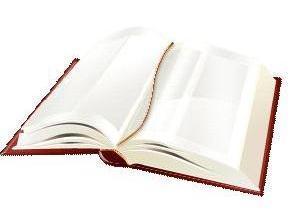 This anything-goes publishing world has been perplexing me for quite some time now, both as an author who is trying to find a place in the wild book frontier of throw-everything-out-there-and-see-what-sticks and as a reader who is trying to find sanity and good-editing and great story-telling among the millions of books being offered for sale.
This anything-goes publishing world has been perplexing me for quite some time now, both as an author who is trying to find a place in the wild book frontier of throw-everything-out-there-and-see-what-sticks and as a reader who is trying to find sanity and good-editing and great story-telling among the millions of books being offered for sale.
People think that good books will rise to the top, that such books will automatically find a readership, but that is not always the case. Wonderful books are being overlooked, and dreadful books with no redeeming value are filling millions of Kindles. Shrugging off the conundrum as "survival of the fittest" doesn't help matters, because in this case, it seems to be matter of devolution, of having to accept typos, poor grammar, ridiculous errors of fact, and an appallingly low standard of literacy. Compounding the problem is that many good writers, who have to watch their books stagnate, no longer see the point in writing, which lowers standards even more.
I used to think this was a matter of a breakdown in the filtering process. If authors have to submit their books to publishers, if they have to go through an editing and copyediting process, then books have a minimum of errors and at least a modicum of good storytelling. Or at least they used to. Even the major publishers are lowering their quality control. If their aim has always been to sell the lowest common denominator, and if those people don't care about quality, then there is no point in adding to the expense by doing the work. Nowadays, when the fastest selling self-published authors are those with an ever growing stream of books, quantity and not quality are the key.
The real problem as I have come to see is not one of filtering, but of strata. There used to be definite strata when it came to readers. People stuck to their own genres, though even within a genre there were definite layers of quality. Some romance writers, such as Colleen McCullough, rose to iconic status. Others, such as Danielle Steele, were firmly entrenched in the lower middle. And still others churned out myriad books for lowest of the low, Harlequin and Silhouette and the other subscription publishers.
And never, except for perhaps the iconic writers, did anyone consider these books to be great writing. (Most could not even fall under the heading of good writing.) And never did the best writers have to compete or be compared to these writers. Yet that is what is happening today. With Amazon taking hold of the book business and running away with it, demarcations between utter trash and high quality books have completely disappeared. All books are thrown into the slush pile, all are ranked by the same classification system, all are treated equally.
But the truth is, all books are not created equal. Just because a book is uploaded to Amazon, just because it sells, it does not mean the book is worthwhile. A badly written book with no redeeming value is still trash, but few people seem to notice, and fewer seem to care.
***
See also:
Perplexed by the Anything-Goes Publishing World (Part I)
Perplexed by the Anything-Goes Publishing World (Part II)
Tagged: Amazon, lowering writing standards, publishing standards, quality books, self-publishing, storytelling








March 19, 2012
How has your background influenced your writing?
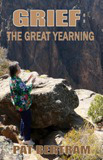 I always thought I'd be a writer, so when I was twenty-five, I quit a job to write a book about a love that transcended time and physical bonds, told with sensitivity and great wisdom. Unfortunately, I discovered I had no talent for writing and no wisdom, so I gave up writing.
I always thought I'd be a writer, so when I was twenty-five, I quit a job to write a book about a love that transcended time and physical bonds, told with sensitivity and great wisdom. Unfortunately, I discovered I had no talent for writing and no wisdom, so I gave up writing.
After I discovered I didn't know how to write, I did temporary work for several years to gain experience of life. Or at least life as it pertains to work. I worked at hundreds of different companies doing everything from filing to billing to bookkeeping to operating a switchboard to selling cars to being a legal secretary. When I wasn't working, which was frequently, I read. All those thousands of books seeped into my subconscious, and gave me a feel for storytelling, and so when I took up writing again, I had more of an idea of how to tell a story. I just had to learn the specifics, such as show don't tell, which I did.
Two years ago, my life mate/soul mate died, and the only way I could handle my overwhelming grief was to pout it out onto pages of a journal, letters to him, and blog posts. When I discovered how much those blog posts meant to people who had also suffered grievous losses, I compiled my writings into a book about my first year of grief called Grief: The Great Yearning, which has recently been published by Second Wind Publishing. And so, quite by accident, I ended up writing the story of a love that transcended time and physical bonds, told with sensitivity and great wisdom. I just never knew that the story I'd always wanted to write would be mine.
Here are some ways their backgrounds influence other authors. The comments are taken from interviews posted at Pat Bertram Introduces . . .
From an interview with Sandra Schwayder Sanchez, Author of "The Nun"
I was a child people called "an old soul" . . . an aunt said I seemed to look right through people and I do remember having insights about what was going on inside the heads of adults and often felt very sorry for them. My mother used to discuss Freudian dream interpretation with me and that fascinated me as well as the mythologies and fairy tales I enjoyed reading. So it was I think inevitable that I would write books in which the world of our dreams and the world of consensual reality interface and merge with almost imperceptible boundaries.
From an interview with Dale Cozort, Author of "Exchange
I grew up in a fair-sized city, but I spent a lot of time with relatives in the country, so I probably write rural life a little more authentically than someone without that experience. I also have a computer background, so there is always a little bit of the techie in my stories. I have to dial that back so it doesn't get in the way of the story.
From an interview with Sheila Deeth, Author of "Flower Child"
I call myself a mongrel Christian mathematician. I think my mixed-up background helps me (or forces me to) see things from a slightly different perspective. Being an English American does the same thing — it makes me more aware of how many of my assumptions are cultural, so it lets me explore characters who might make different assumptions.
So, how has your background infuenced your writing?
(If you'd like me to interview you, please check out my author questionnaire http://patbertram.wordpress.com/author-questionnaire/ and follow the instruction.)
Tagged: Christian mathematician, Dale Cozort, Grief: The Great Yearning, old soul, Sandra Schwayder Sanchez, Second Wind Publishing, Sheila Deeth, what influenced your writing








March 18, 2012
The Top Ten Reasons We Need a Good Laugh by Lazarus Barnhill
I needed a good laugh today, and while this post by fellow Second Wind Author Lazarus Barnhill might not have given me the laugh I needed, at least he explained why I needed it. And he made me smile, so that's a step in the right direction. I hope you enjoy Lazarus Barnhill's article as much as I did.
The Top Ten Reasons We Need a Good Laugh by Lazarus Barnhill
A couple weeks ago I tried an experiment. For a solid week I turned off my computer at 11:30 and turned on the TV. I alternated daily between watching the monologue of Jay Leno and of David Letterman. My goal was to determine which of the two was the better comedian. I watched Leno Monday and Wednesday and Letterman Tuesday and Thursday. What did I decide? . . . Well, honestly, neither one of these guys is all that funny. On Friday I watched Leno's monologue and then tuned in to Letterman's famous "Top Ten" list. That made it official: you can combine the two and they still aren't funny.
In my judgment (and I realize this is strictly my jaundiced opinion), these two guys are unfunny for different reasons. Leno constantly goes for the quick, easy, often dumb joke. His studio audience responds with regularly timed courtesy laughs, so much so I wonder how they'd respond if he said something really funny. Occasionally he does say something fairly clever, but his delivery is so popeyed and cute that it spoils the gag—like someone ruining a joke by laughing at his own punch line.
Letterman doesn't really try to be funny so much as he coasts along trying to be hip. His entire presentation is a perpetual NYC insider joke: "I'm too fashionable to do anything but pretend to take this seriously; and if you're hip, you'll laugh at this pretense along with me." The currency of Letterman's humor is patronizing cuteness. His Top Ten list is an exercise in hipness, a big part of which is making certain nothing really funny ever gets listed.
So what? Well the reason I tried my little experiment was because I needed a good laugh. Ever been there? And what can be crueler than tuning into a TV comedian who gets millions of dollars a year because he's supposed to be funny and not getting anything like a legit chuckle? I have this burning desire to express a thought to these two guys: you two are paid to make us laugh; we have no desire to listen to your pandering and coasting. Once upon a time, each of you knew how to be funny and you need to find that place again—and here are the top ten reasons we need a good laugh:
10. We need to remember we're still alive. A good laugh is living proof of living. Among the prominent things dead folks don't do is laugh.
9. We need to show God we can take a joke.
8. Laughter is free. And it's free to laugh at people who are at different economic stations than we are. [True story: Year ago I went to an independent film at the ritziest theater in St. Louis. There I saw a well-to-do fellow come up to the kid running the concession stand and inform her that she had to hold his pager during the show so she could come get him if it went off. Funniest thing about it—the guy had utterly no idea why I was laughing.]
7. Laughter is a universal time machine, taking us individually back to our best or worst moments without cost, grief or regret.
6. A good laugh washes away our anxiety; that is, it yanks us out of what we regret (the past) and what we fear (the future) and brings us back to the present, if only for a moment. We see things more clearly after a good laugh, and make better decisions.
5. A good laugh is hard-wired into reality and truth. A spontaneous belly-laugh momentarily cuts through the sham and self-deceit of civilized living like a breath of cool, fresh air in a stuffy, moldy room.
4. A good laugh is spiritual, like a miracle: you never see it coming; it overwhelms you despite yourself; you can bask in it and be refreshed.
3. It's a presidential election year. Presidential election cycles should be renamed: "the year of living seriously." When did a political candidate say something funny that wasn't a dig at somebody else?
2. We need to laugh down the walls between us. Being serious, earnest and worried about our differences hasn't worked.
1. We all have at least ten things to cry about.
True story: On lucky April 13, 1988, my beloved red Nissan pickup was totaled in downtown Tulsa by a drunk driver who ran a red light and t-boned me. After making sure the other driver (and his drunken girl friend) were not seriously injured, I stood in the middle of the intersection looking at my crumpled vehicle. A tall, earnest fellow hustled out of the Dodge dealership on one corner of the intersection, informed me that he had called the police and said, "This may be a bad time to ask this, but are you in the market for a truck?" For a split second I was furious. And then I laughed, a nice big, curative laugh. I don't need anymore car wrecks—but I could use a few more good laughs.
***
 Lazarus Barnhill is the author of Lacey Took a Holiday and The Medicine People, available from Second Wind Publishing.
Lazarus Barnhill is the author of Lacey Took a Holiday and The Medicine People, available from Second Wind Publishing.
Tagged: a good laugh, David Letterman, funny, Jay Leno, laughter is free, the year of living seriously








March 17, 2012
Do you think writing this book changed your life?
 Speaking of Daughter Am I, I wish I could say writing this book changed my life since would make a good story, but the fact is, it made little difference. It was the third novel I wrote. I'd already experienced the joy and sense of accomplishment completing a novel gives one, and I'd already experienced the disappointment that comes from having a novel rejected. I'd already experience the joys of being published and the disappointment that comes from not having the book take off immediately. Now, if Daughter Am I would go viral, that would change my life!
Speaking of Daughter Am I, I wish I could say writing this book changed my life since would make a good story, but the fact is, it made little difference. It was the third novel I wrote. I'd already experienced the joy and sense of accomplishment completing a novel gives one, and I'd already experienced the disappointment that comes from having a novel rejected. I'd already experience the joys of being published and the disappointment that comes from not having the book take off immediately. Now, if Daughter Am I would go viral, that would change my life!
Here are some challenges other authors faced as they wrote their books. The comments are taken from interviews posted at Pat Bertram Introduces . . .
From an Interview with Harold Michael Harvey, Author of "Paper Puzzle"
Yes I do think writing this book has changed my life. After leaving the practice of law I had to redefine myself, reinvent me if you will. And writing has gotten me back to the original childhood dream of what I wanted to do in life. The joy of writing legal thrillers is a lot less stressful than fighting to keep the State of Georgia from killing my client with a lethal injection as deadly as those given to Michael Jackson by Dr. Conrad Murray.
From an Interview with J J Dare, Author of False Positive and False World
Writing my first book a few years ago gave me confidence. I believe it was an exercise to prepare me for the challenges I would shortly face in my personal life.
From an Interview with Noah Baird, Author of Donations to Clarity
I think people thought I was pretty weird before the book. They still think I'm weird, but I think I get a pass now because I'm a writer.
From an Interview with Calvin Davis, Author of The Phantom Lady of Paris
After penning the Phantom Lady, I was not the same person. The actual writing of the novel took about five and a half years. During that period, I wrote and rewrote again and again, etc. That said, the truth is, it took me all my life to write the Phantom Lady. The penning of my two other novels was preparing me to write TPLOP. The production of my countless short stories was also tutoring me on how to create the Phantom Lady. And during all this time of schooling, "the lady" was inside me clamoring to be liberated, as I was clamoring to liberate her. "Free me…free me," she screamed. When I completed the last sentence of the novel, the lady was finally liberated. "Thank you, Calvin," she said. "Thank you." Finally, she was free…and so was I.
From an Interview with Sherrie Hansen, Author of Merry Go Round
I think each book that I've written has changed my life. I remember an episode of Star Trek, Next Generation, when Jean Luc Picard was swept away to live out his life on another planet. He eventually fell in love, married, had children, and learned to play a musical instrument. When his new world came to an end, he learned that he had never left the Enterprise, and that the whole alternate life experience had occurred only in his mind, in a few days time. I feel like that every time I finish a book. It's like I've visited some alternate reality and lived the life of my character from start to finish, feeling what they feel and experiencing what they experience, when in reality, I've just been sitting at my desk, typing away. In a very real way, I think each book makes me a richer, more multi-faceted, more understanding person because when I've walked a mile (or a hundred) in my character's shoes.
Tagged: Daughter Am I, does writing change your life, how does writing change your life, why write








March 16, 2012
Excerpt From "Daughter Am I" by Pat Bertram
 Daughter Am I
: When twenty-five-year-old Mary Stuart learns she inherited a farm from her recently murdered grandparents — grandparents her father claimed had died before she was born — she becomes obsessed with finding out who they were and why someone wanted them dead. Along the way she accumulates a crew of feisty octogenarians — former gangsters and friends of her grandfather. She meets and falls in love Tim Olson, whose grandfather shared a deadly secret with her great-grandfather. Now Mary and Tim need to stay one step ahead of the killer who is desperate to dig up that secret.
Daughter Am I
: When twenty-five-year-old Mary Stuart learns she inherited a farm from her recently murdered grandparents — grandparents her father claimed had died before she was born — she becomes obsessed with finding out who they were and why someone wanted them dead. Along the way she accumulates a crew of feisty octogenarians — former gangsters and friends of her grandfather. She meets and falls in love Tim Olson, whose grandfather shared a deadly secret with her great-grandfather. Now Mary and Tim need to stay one step ahead of the killer who is desperate to dig up that secret.
Excerpt:
Mary blinked in the sudden brightness, then blinked again when she saw Iron Sam. He seemed to be the personification of the inorganic being, as Happy called it. His skin looked ashen. Charcoal bags hung below slate eyes. His hair, still thick, still with the deep widow's peak, had faded to pewter. The only hint of color in his face was the gold tooth visible between slightly parted gunmetal-gray lips.
He glanced up as they entered, but no other part of his body moved. Nor did he speak.
"Hi, Sam," Lila Lorraine said.
The slate eyes shifted toward her.
"It's me. Lila Lorraine."
Iron Sam nodded, the merest inclination of his head.
Happy stepped forward. "Remember me? Happy?"
Again the tiny nod.
Mary wondered if he were paralyzed, but if so, wouldn't he be in a wheelchair instead of an ordinary wooden chair?
Any compassion she might have felt withered when his eyes met hers. Feeling like a bug impaled on a pin, she gazed at him, unable to look away, unable to move a single muscle. After what seemed like a long time, but must have been only seconds, he turned his attention to Kid Rags, leaving her feeling limp and very thirsty, as if her vital fluids had been sucked right out of her.
With nonchalance Mary could only marvel at, Kid Rags pulled out his flask and offered it to Iron Sam. When Iron Sam nodded toward the plastic cup sitting on the bedside table, Kid Rags poured two fingers of bourbon and handed the cup to him. He sniffed it, inhaling deeply with closed eyes, then took a mouthful and held it a moment before swallowing it. His lips twitched — a smile perhaps? — then he took another sip.
The alcohol fumes mingling with the hospital odors and the stench of decay emanating from Iron Sam's pores turned Mary's stomach. She swallowed hard, then swallowed again, knowing she shouldn't show weakness in front of Iron Sam, and somehow she managed to get her queasiness under control.
He flicked a look in her direction, as if sensing her struggle, then concentrated on his drink once more.
"My name is Mary Stuart," she said when she could no longer stand the heavy silence. She introduced Kid Rags, Crunchy, and Teach, then explained about her grandparents' deaths.
"What can you tell me about my grandparents? You might have known them as Jimmy Boots and Gina Dale."
*
St. Patrick's Day Special!
This weekend, until March 18, 2012. Daughter Am I is on sale for $2.99 on Kindle at: Amazon
*
Tagged: Daughter Am I, excerpt, feisty octogenarians, gangsters, Iron Sam, mystery








March 15, 2012
Steampunk Collaboration
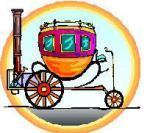 I'm cheating tonight. I spent so much time writing a possible time travel scenario for the steampunk collaboration I'm involved in with seven other authors, that I didn't have time to write a blog. So I'm posting the scenario. What do you think?
I'm cheating tonight. I spent so much time writing a possible time travel scenario for the steampunk collaboration I'm involved in with seven other authors, that I didn't have time to write a blog. So I'm posting the scenario. What do you think?
Possible time travel scenario:
A tourist is found dead in a time travel machine, clutching some sort of gizmo in his hand. Knowing that a death could kill business in what is supposed to be a safe traveling mode, the operators of the Time Travel Company decide to investigate.
They have some sort of recordings of where the traveler has been, one from each era he visited, (secret, of course, since if the tourists knew they were being recorded, it would put a damper on business) and the Time Travel Company sets employees to watching these tapes (crystals? discs? a sophisticated version of Babbage's difference engine or analytical engine?). Since it's real time, they all watch at the same time, otherwise it could take weeks for them to see what went on during the tourist's trip. Perhaps news of the death leaked, and if they don't discover the truth fast, they will be ruined, so time if of the essence. This is how we could get by the problem of doing five sets of eight chapters. After each set of chapters, the TTC operator and a trusted employee could discuss what they saw, see if there were any abnormalities, and when they don't find anything out of whack, they continue watching the tapes.
Since our guy is by himself, posing as a tourist, chances are his reasons for traveling are personal. Considering that coal is such a polluter, perhaps his wife died of lung cancer, and if they weren't wealthy, chances are they couldn't get out of the city to clean air. Maybe he studies alchemy texts, finds a way to produce clean steam by means of cold fusion or atomic energy (supposedly the alchemists knew how to do this without producing radioactive side effects) or some other energy source, and he wants to go back to the past to find someone who will utilize the machine so that by the time his era comes around, there is no pollution. (There's no point in his finding backers in his own time since his wife is already dead.) Another possibility is that he is looking for a way to blow a hole in time to change things, so that perhaps by the time he gets back to his era, things will have changed. He is killed before he can put his plans in motion. It would be up to you to decide why your character would want to kill him to maintain the status quo.
If he is lower class (or low middle class) his clothes would not be out of place in any period in the steam era. This would save him from traveling with an extensive wardrobe.
He and his agenda would be the unifying factor of all the POV characters. You tell the story from your character's POV, but he is a major character in your substory. During each set of chapters, he grows more and more frantic, since he can't find what he wants (someone to give his gizmo to, or perhaps a way to use it to blow a hole in time to change the future. We don't see the end of his story, the TTC has to figure it out, because once he is dead, his story ends. We would not know in which era his story ended, because in the past, all time happens at the same time.
The benefits of this scenario are that the authors can decide what year/era they want their character to live in, can write their story without much regard to other authors' stories (except to keep the tourist consistent), and the tourist would provide the unifying factor without having to spend weeks trying to figure out what all the chapters have in common. Another benefit is that the scenarios wouldn't have to be based on history, but could be more personal as long as they were consistent with the time period you choose.
The drawbacks are that you might not be able to tell the story you want — you'd have to keep the story simple, focused on both your character's agenda and the tourists, and somehow link them. You'd have to pick a past era, rather than a fanciful future era since a future era would do our traveler no good. And you'd have to pay attention to how the other authors develop the character of the tourist to keep him consistent.
If you don't like this scenario, we can still do the one we talked about where all of our characters once were members of a think tank, and now someone is killing all the members. The remaining members (our characters) get together to figure out who the perpetrator is and why he wants them dead, and they discover that the assassin is one of them.
Either scenario would work for our purposes.
Tagged: collaboration, steampunk, time travel








March 14, 2012
List of Loaths
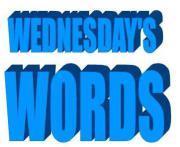 I have a list of words and phrases I loath.
I have a list of words and phrases I loath.
Giving 110% – - A physical impossibility, and even if it were possible, your energy and fluids and muscles fibers would be so debilitated that you might not be able to recover
24/7 — The only thing you can do 24/7 is breathe. This monstrous figuration is particularly loathsome when used in conjunction with 110%. Giving 110% 24/7. Yeah, right.
Coed — This is a sexist term that was born in the nineteen thirties when women enrolled in previously all-male colleges, and it is a term that should have died there. Men were educated, women were coeducated. Not the same thing at all.
Intestinal fortitude — This term ties my guts in knots. Use plain old "fortitude" or have the guts to say "guts". Even better, use the word "courage".
Veggies — I should have put this at the top of my list. This one really grates. What is wrong with "vegetables"? Are we children, that we need cute words to entice us to eat foods that are good for us?
Today, I'm adding a couple of new phrases to my list of loaths. With election year politics fouling the air, this is a good time to mention them since you are probably as sick of hearing these hyperboles as I am. These phrases refer to POTUS, the president of the United States.
The most powerful man in the world. Uh, yeah. Don't even know where to start with this one. There are men and women in the world who head debt-free conglomerates who could buy and sell the United States. These folks buy presidents with petty cash. They shell out billions of dollars to lobbyists to make sure their agendas are met. They buy zillions of tickets to $1000 plate dinners to make sure that their needs are known.
Our government is basically a committee. The president has advisors, has to answer to appropriations committees and other congressional groups who have the power to squelch his demands. He has to answer to his party, and most of all, during his first year, he has to pay attention to the polls. The only goal a president has his first term is to get re-elected to a second term. Doesn't sound all that powerful to me.
Perhaps POTUS is the most powerful celebrity, perhaps he is the most powerful elected official, perhaps he is the most powerful public relations icon. But he is not the most powerful man in the world. Nor, as I have heard several times lately, is he the most powerful man in the solar system. I can't even imagine the foolish minds that come up with this stuff.
The leader of the free world. Says who? Does anyone in France consider POTUS their leader? Does anyone in England? Or Germany? Or Canada? And what is the free world anyway?
Please, before you use such in inanities in your writing, pay attention to what you are saying. I just a picked up a book where, in the first chapter, POTUS was called the most powerful man in the country. In the second chapter, he was called the most powerful man in the world. In the third chapter, he was called the most powerful man in the solar system. I didn't stick around for the fourth chapter, where I'm sure POTUS would have been called the most powerful man in the universe. I many not know much, but I do know this: POTUS is not now, nor ever will be, the most powerful man in the universe.
Tagged: list of loaths, POTUS, the leader of the free world, the most powerful man in the world





